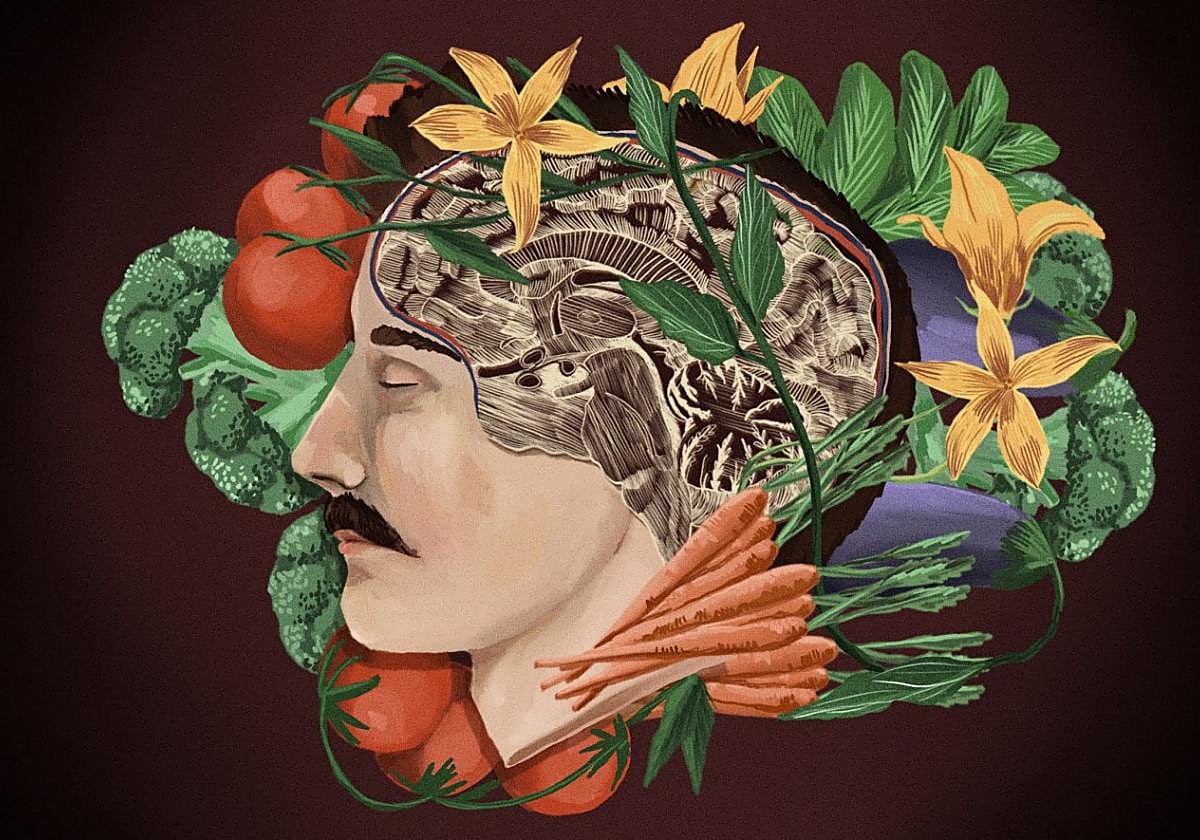Being overweight can affect the whole body
How obesity can influence your chances of a stroke or developing dementia or Parkinson's
Elena Martín López
Madrid
Friday, 12 April 2024, 16:38
Since whatever we put into our mouth can expand our body but not especially our head, we tend to link being overweight and obese with the stomach rather than with the brain. However, while the love handles are very noticeable, they are not the worst consequence of overeating. In fact, the brain is one of the most significant victims of obesity and not only because of how this disease can affect us psychologically.
That does not mean that fat is like poison to this organ. On the contrary, although fat is demonised at the social level, the reality is that it is a vital nutrient for proper bodily functions (storing energy, facilitating the transport of essential vitamins round the body, being a key part of the membranes that make up our cells, supporting our organs...) and, more specifically, for the brain, which is a fatty organ.
Furthermore, "myelin, a substance that surrounds and protects neurons and is responsible for the transmission of nerve impulses, is fatty," explains Dr Gurutz Linazasoro, neurologist and spokesperson for the Spanish Society of Neurology (SEN). Therefore, the problem is not fat itself but the excess of it in our bodies due to an excessive, unbalanced consumption.
What is more, there is also a two-way relationship between food and the brain. For example, the brain regulates when we feel full or hungry based on the information it receives from different hormones and neurotransmitters in the stomach.
The problem with obesity is that it affects the balance between both organs because, among other things, "it promotes an overgrowth of bacteria that generate a state of inflammation, causing cell death and a decrease in nerve transmission and affecting blood vessels, thus enabling the appearance of diseases such as diabetes or arterial diseases, increasing the risk of stroke (due to heart attack or cerebral haemorrhage) and dementia," explains Linazasoro.
Altered perception of taste
Interesting findings have also turned up following studies using different neuroimaging techniques. For example, "findings that describe a decrease in the thickness of the cerebral cortex and reduced connectivity between the different regions of the brain, alterations in the perception of flavours and changes in the structure and function of the hypothalamus, a critical area of the brain that controls appetite," says the neurologist, although he warns that it is tricky distinguishing which of these harmful changes are solely down to obesity.
Still, from a clinical point of view subtle issues have been detected in processes such as memory, decision-making, mobility and balance. "The relationship with amnestic-MCI [mild cognitive impairment mostly affecting short-term memory], a precursor to Alzheimer's, is supported by a variety of studies. Obesity is also noted as a symptom during the phase preceding the appearance of Parkinson's disease, although this is not an idea accepted by everyone. And it is a clear risk factor for suffering more aggressive and severe forms of Covid-19," states the specialist.
Regarding obesity's impact on daily life, it is associated with a sedentary lifestyle, diabetes and high blood pressure, and is sometimes accompanied by other harmful habits such as smoking, alcohol consumption or an inadequate diet. "There are many studies that measure the impact of obesity on the quality of life and the results are very negative, because they affect the physical, emotional and social aspects. The image of the 'happy fatty' is fading in a society that's inventing the cult of the body and that is increasingly aware of the importance of a healthy lifestyle," says Linazasoro. What's more, a lack of self-esteem, anxiety, social isolation and depression are some of the common psychological disorders associated with obesity. A final point, obese people have a shorter life expectancy than the average individual.
How too much fat affects your body
The heart: Obesity is associated with a higher risk of developing cardiovascular diseases such as coronary artery disease, myocardial infarction, hypertension or atrial fibrillation.
The bones: Not just our bones, but muscles too, obesity can cause fibromyalgia, osteoporosis, rheumatoid arthritis, lower back pain and an increased risk of bone fractures in children.
The lungs: Excess body fat reduces the strength of these respiratory muscles and increases the risk of sleep apnea (stopping breathing while asleep), as well as obesity hypoventilation syndrome, all of which are known to cause respiratory failure.
The kidneys: Being overweight can cause a deterioration in kidney function, their primary function being to clean the blood of waste and potentially harmful substances to be passed out of the body in our urine.
It is true that excess fat does not affect the brains of men and women in the same manner. "For example, sensitive areas related to body image, decision-making and emotional control are more affected in men, while in women the areas associated with the brain's reward system are more activated, becoming overactive when faced with stimuli or actions that give us pleasure," explains Linazasoro.
All of this suggests that the mechanisms involved in loss of appetite control could differ depending on gender. "Maybe hormones play a certain role. It's a fact that obesity is more prevalent in women. These are questions that will be resolved with more research, leading to more personalised treatment such as designing the most suitable diet," he says.
As for avoiding obesity, the prevention is simple: a proper diet, physical exercise and a healthy lifestyle. "It is important to start from childhood, with an education that especially encourages exercise and good nutrition. High-calorie and ultra-processed foods are the worst. It is about eating a healthy, varied, balanced diet and eating in moderation. The enemies are salt, sugar, trans-fats and alcohol."
